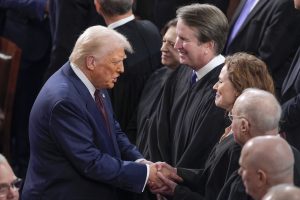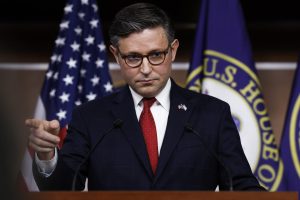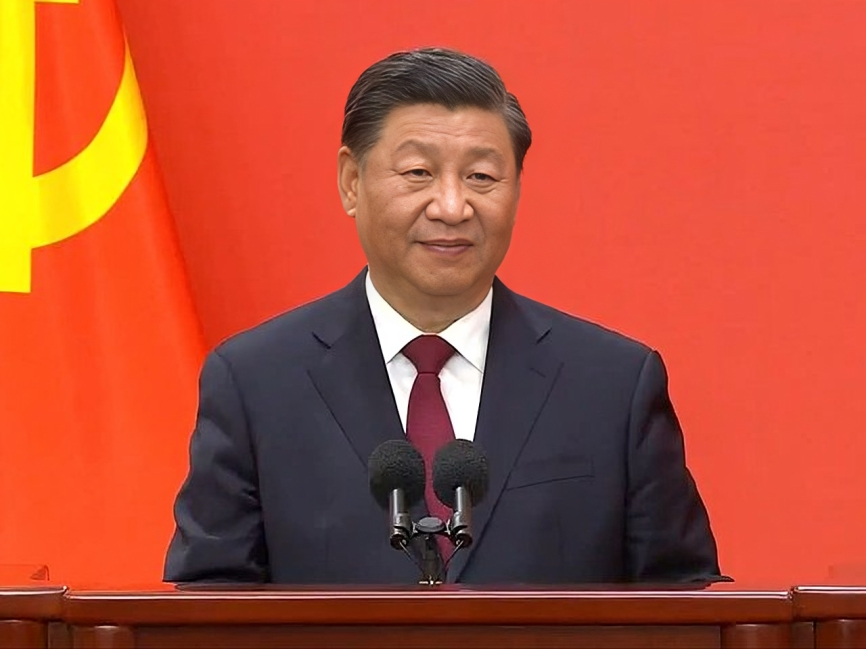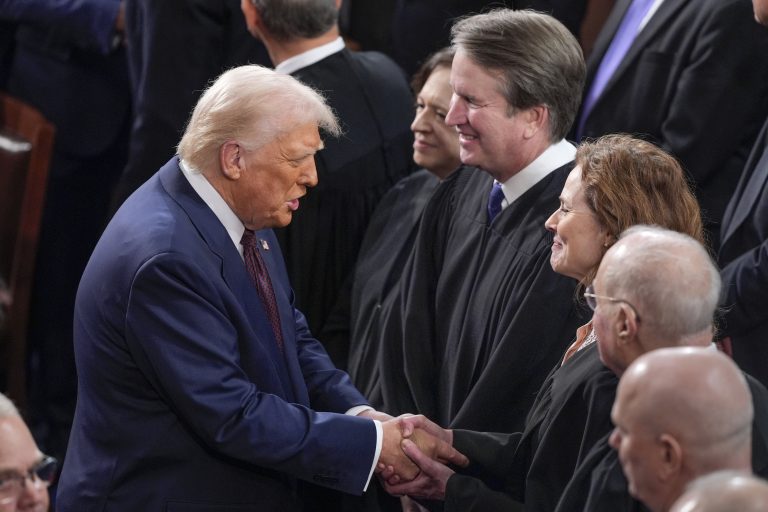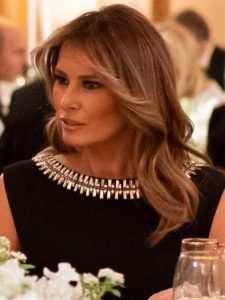President Donald Trump has once again escalated the ongoing U.S.–China trade war, calling Beijing “hostile” and threatening to impose sweeping new tariffs and export restrictions as relations between the two economic superpowers reach their most volatile point in years.
The confrontation erupted after Trump announced plans for a 100 percent tariff on all Chinese imports and new export controls on “any and all critical software” beginning November 1 — just two days after his expected meeting with Chinese President Xi Jinping at the Asia-Pacific Economic Cooperation (APEC) summit in South Korea.
While Trump said the timing was “not a coincidence,” he also suggested that the meeting could be canceled entirely, depending on how Beijing responds.
“We’re gonna have to see what happens. That’s why I made it November 1,” Trump told The Financial Times.
“I haven’t cancelled, but I don’t know that we’re gonna have it. But I’m gonna be there regardless, so I would assume we might have it.”
Beijing Fires Back
China’s Ministry of Commerce fired back with unusually sharp language, accusing Trump of “hypocrisy” and “typical double standards.”
In a statement, the ministry said:
“China’s position on the trade war is consistent: we do not want it, but we are not afraid of it.”
Officials in Beijing also hinted at retaliatory measures, warning of “special port fees” on U.S.-built ships and counter-tariffs to “defend China’s legitimate rights and interests.”
“Washington has been ratcheting up economic measures since September,” the statement continued. “If the U.S. insists on escalating, China will respond resolutely.”
Rare Earths at the Center of the Conflict
The latest flare-up comes amid a deeper dispute over rare earth minerals — critical components for everything from smartphones and electric vehicles to renewable energy systems and military technology.
China, which dominates global production of these materials, recently imposed new restrictions on the export of technology used to mine and refine rare earth elements — a move that Washington called an act of “economic coercion.”
Trump responded on Truth Social, writing:
“Beijing is being very hostile. They should not be allowed to hold the world captive by restricting access to these resources. It’s time for America to stand up to China’s unfair trade practices.”
Mounting Tensions and Uncertain Diplomacy
The tariffs are only the latest in a long line of economic blows exchanged since Trump began his second term, with both nations now imposing multiple layers of penalties.
Currently, the U.S. levies an additional 30 percent tariff on Chinese goods, while Beijing imposes a 10 percent tariff on American exports — but analysts warn the situation could worsen dramatically if neither side backs down.
Trump has long accused China of profiting from fentanyl exports and intellectual property theft, framing the trade war as part of a broader effort to “rebuild American industry” and “protect national security.”
China, meanwhile, insists that the U.S. is trying to “contain its rise” and “interfere with its sovereignty.”
Possible Meeting in Jeopardy
The November APEC summit had been touted as an opportunity to stabilize relations between the world’s two largest economies, but Trump’s latest comments — paired with Beijing’s fierce response — have cast new doubt on whether a face-to-face meeting will happen at all.
Chinese state media suggested the President’s new tariffs were designed to “provoke and pressure” Xi ahead of the summit, warning that “cooperation cannot be built under threats.”
So far, neither the White House nor the Chinese Embassy has confirmed whether the meeting remains on schedule.
Growing Global Impact
Economists say the renewed tensions could trigger global market volatility, especially in sectors reliant on rare earth materials and semiconductor technology.
The U.S. Chamber of Commerce warned that further escalation could “disrupt global supply chains” and “undermine economic recovery efforts.”
Meanwhile, European officials have quietly urged both sides to “de-escalate” and return to a negotiated framework under the World Trade Organization (WTO).
But with Trump doubling down and Beijing refusing to yield, analysts say the standoff may only worsen in the weeks leading up to November.
“This isn’t just about tariffs anymore,” said Dr. Elaine Porter, a trade policy expert at Georgetown University. “It’s about global dominance in critical technology, and neither side wants to blink first.”
What’s Next
For now, both Washington and Beijing appear locked in a game of high-stakes brinkmanship — with billions of dollars in trade and the fate of the global economy hanging in the balance.
The Ministry of Commerce closed its statement with a warning:
“We have been patient, but patience has limits. If the United States continues to escalate, China will act decisively.”
Trump, however, seems equally determined to press ahead, telling reporters on Thursday that “America will no longer be taken advantage of.”
“We want fair trade, not one-sided deals,” he said. “If that means standing up to China — we’ll do it. No hesitation.”

James Jenkins is a celebrated Pulitzer Prize-winning author whose work has reshaped the way readers think about social justice and human rights in America. Raised in Atlanta, Georgia, James grew up in a community that instilled in him both resilience and a strong sense of responsibility toward others. After studying political science and creative writing at Howard University, he worked as a journalist covering civil rights issues before dedicating himself fully to fiction. His novels are known for their sharp, empathetic portraits of marginalized communities and for weaving personal stories with broader political realities. Jenkins’s breakout novel, Shadows of Freedom, won national acclaim for its unflinching look at systemic inequality, while his more recent works explore themes of identity, resilience, and the fight for dignity in the face of oppression. Beyond his novels, James is an active public speaker, lecturing at universities and participating in nonprofit initiatives that support literacy and community empowerment. He believes that storytelling is a way to preserve history and inspire change. When not writing, James enjoys jazz music, mentoring young writers, and traveling with his family to explore cultures and stories around the world.

